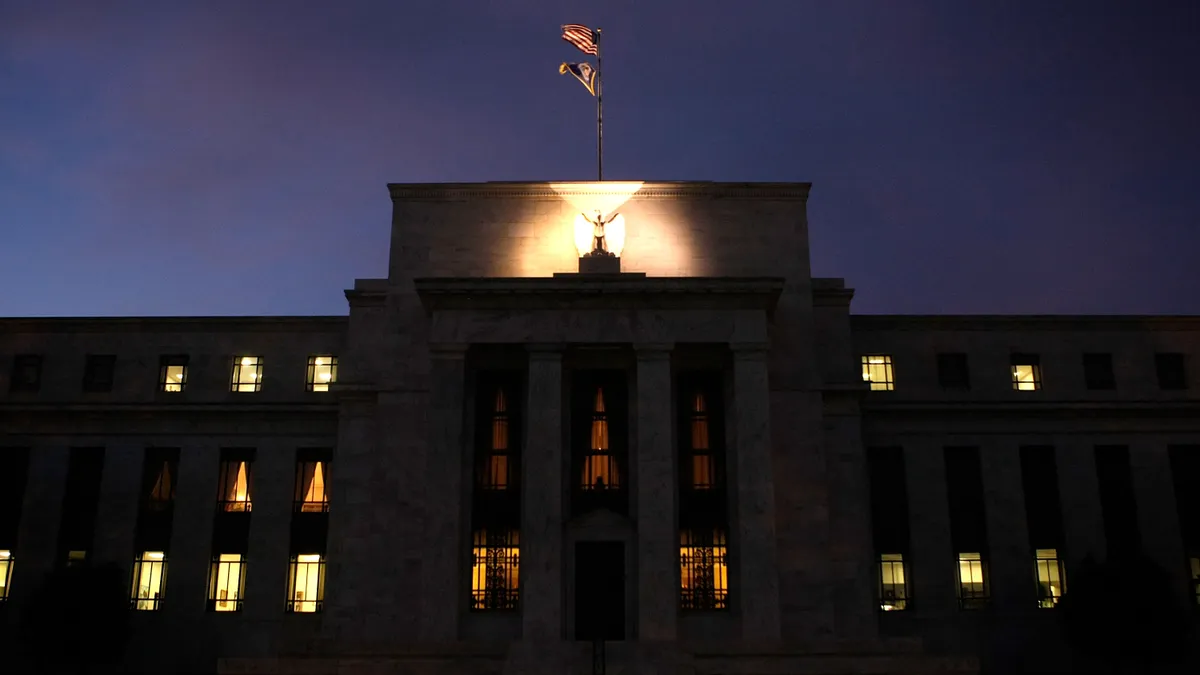Two U.S. lawmakers unveiled bipartisan legislation on Friday that they say would usher in more transparency at the Federal Reserve and ensure Congress has access to critical information related to ethics.
Senators Elizabeth Warren, D-MA, and Pat Toomey, R-PA, both members of the Senate Banking Committee, announced the Financial Transparency Act that would subject the 12 regional branches of the Fed to respond to information requests from Congress under the Freedom of Information Act.
"During the largest ethics scandal in the history of the Federal Reserve System, Fed officials have stonewalled the American people and slow-walked their representatives in Congress," Warren said in a statement. "This bipartisan bill is a necessary response to ensure that no financial regulators can ignore congressional oversight into ethics failures, and finally deliver more transparency and accountability for any wrongdoing."
The proposed legislation calls for aligning the Fed with other large agencies by making its inspector general a presidential appointee and forbidding all financial regulatory agencies from denying ethics-related information requests from Congress.
It also calls for the Fed and other regulatory agencies to prioritize a FOIA request by any member of Congress. The bill would prevent the Fed from charging fees to proceed with FOIA requests, and would require the Fed and the regulatory agencies to give a member of Congress who has filed a FOIA request the right to bring a lawsuit against those who withheld record, among other things.
The proposed reforms plan to strengthen Congress’ oversight of the Fed and other financial regulatory agencies, a press release from Warren said.
The legislation would solve the long-running debate between the Fed and those in Congress or other institutions who sought information about the central bank’s activities.
The financial regulatory agencies under question are the U.S. Securities and Exchange Commission, the Consumer Financial Protection Bureau, and the Federal Deposit Insurance Corporation.
The regional reserve banks claim to be independent and private entities exempt from responding to FOIA requests. But they uphold the “spirit of FOIA” and release information on request, according to American Banker.
A spokesperson from the central bank declined American Banker’s and Bloomberg’s requests for comment on the bill.
The bipartisan bill has brought together two senators who rarely agree in public and have raised questions on individual reserve banks this year.
Warren has been an outspoken critic of the Fed's ethics woes since a September 2021 scandal revealed now-former regional Fed presidents, Robert Kaplan of Dallas and Eric Rosengren of Boston, traded stocks in 2020 while being involved in setting monetary policy. They resigned within hours of each other.
Following Atlanta Fed President Raphael Bostic’s October admission that he improperly disclosed financial transactions dating back to 2017 because he misunderstood trading restrictions, Warren deemed the situation “an alarming failure by President Bostic and further evidence of the depth of the ethics problem at the Fed.”
The Fed updated its policy following the event and barred board governors, regional presidents, and senior staff from buying individual stocks, holding investments in individual bonds or agency-backed securities, or entering into derivatives.
In June, Toomey and three other Republicans on the Senate Banking Committee sent a letter to Kansas City Fed President Esther George requesting more information on how Colorado fintech Reserve Trust got a Fed master account, which helped the company to move money through the Fed’s system without using a bank.
George’s refusal to disclose the information highlighted “obstructionism” and showed the need for more transparency and accountability at the central bank, the senators wrote in response to the denial.
“The Fed and regional Fed banks, despite being creatures of Congress, obstruct congressional oversight inquiries all too often,” said Toomey in a statement. “In light of this persistent refusal to comply with reasonable requests for information from both Republicans and Democrats, I’m glad to join with Senator Warren in pursuing reforms that will compel these public institutions to be more transparent and accountable to the American people.”













